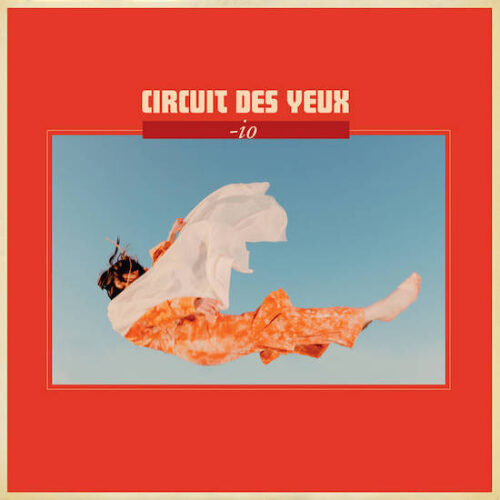"If it’s good for you, then it’s good for me," Haley Fohr, AKA Circuit Des Yeux, sings on ‘Dogma’, from her sixth album, -io. That song seems to be about Fohr looking for faith when everything around you is falling apart. In a way that is what the album seems to be about. Not necessarily about faith, but about trying to keep it together.
On -io, Fohr wanted to write about joy. She had recently lost a friend and the grief was too much. She thought trying to channel joy would be the right way to go. An artist’s residency at Robert Rauschenberg’s house in Florida had been arranged, but there, Fohr experienced even more despondency. After returning to her Chicago home, the pandemic hit. Grief was everywhere. To deal with this, Fohr conceived -io. A place where everything is continually ending, all the time.
Fohr’s ability to collaborate with other musicians was also effectively removed so she started writing on an organ and piano, instead of guitar. This gave the songs a solid foundation, from which she could layer guitar and her glorious vocals. When she was finally able to record with other people, it was only six people in the studio at a time. It’s remarkable to think about what Fohr achieved alone and how different -io would have sounded if COVID-19 restrictions weren’t in place at the time.
After a brief atmospheric intro, -io opens with ‘Vanishing’. There are some massive ELO vibes going on. Huge, chugging, string sections gives us the strongest melody Fohr has ever released. Then her elegant vocals kick in. Any ideas that this might be a conventional pop record slowly start to dissolve. This is ‘Vanishing”s, and the album’s, masterstroke.
In the past, Fohr has played with genres, and our perception of them. On ‘Portrait’, she’s stripped everything back and delivered something in the vein of garage rock, albeit very DIY and experimental at the same time. ‘In Plain Speech’ has a minimal, classical vibe to it, interspersed with soaring, almost operatic, vocals and catchy basslines. ‘Reaching For Indigo’ feels like a more conventional singer-songwriter album track. Guitar, vocals and some synths add some extra texture and hold everything together. ‘Stranger’, meanwhile, is said to have been recorded in one take. It feels as exciting after the ninth listen as it does after the first, and her vocals are flawless – it’s possibly the best vocal take she’s ever recorded.
A higlight comes in ‘The Chase’, with its jaunty strings sounding like they were lifted from the soundtrack to The Grand Budapest Hotel. Fohr takes that whimsy, and adds her gossamer vocals and claustrophobic lyrics to create something far more memorable. The remarkable thing about -io is how catchy it all is. Earlier I hinted that Fohr lured us into a trap of thinking this would be a conventional pop album. In a way it is. ‘Dogma’ might be the poppiest thing Fohr has ever put her name to, but it’s also incredibly avant-garde. This is down to her soaring vocals, and the way the songs are constructed. Parts of -io remind me of how Scott Walker, in his later career, would tell these terrifying stories filled with piercing strings, massive drums and discordant layers of sound, but make it totally compelling and a joy to listen to. -io has this.



